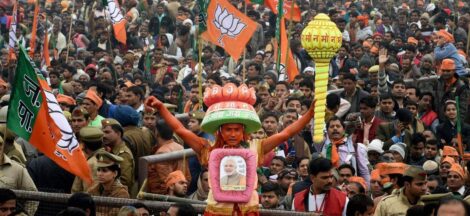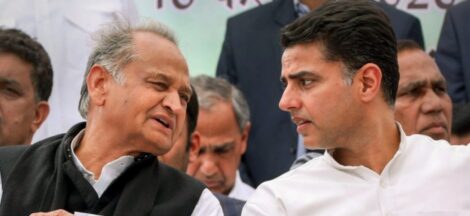By Sushil Kutty
Women’s rights are taking a beating in Kerala, floundering in the choppy waters of pride and prejudice. Rape accused Bishop Franco Mulakkal is out on bail even as a massive outpouring of ‘belief’ is mocking the Supreme Court verdict on the entry of women of all age in the Sabarimala Ayyappa temple. Religion and politics are stealing a march over the judiciary, rule of law.
The ball is in the government’s court to correct that impression. But both the state and the Centre are withholding taking a decision, a stand. In fact, the Pinarayi Vijayan government is caught in a circle of suspicion. Pinarayi did not put up a fight for Sabarimala and for the nun. Bishop Franco Mulakkal is barred from entering Kerala but he will get back to become Bishop of Jalandhar, if the Pontiff in Vatican does not object. Why blame PM Narendra Modi and MJ Akbar? Patriarchy and religious prejudice are alive and kicking in secular Kerala/India and Christian Vatican. The woman is persona non grata in Ayyappan temple and the Vatican. No difference of opinion there. Trupti Desai’s right to worship is no right.
Violence awaits her. Praveen Togadia’s monotheistic goons are roaming the road to Sabarimala in SUVs. The Supreme Court can only watch. BJP MP Subramanian Swamy has asked for the Army to enforce the apex court’s order, but everybody knows Swamy’s double standards regarding Ram Mandir. He doesn’t agree with Chief Minister Pinarayi Vijayan on several matters including the status of “ownership” of the Devaswam board.
Pinarayi’s double-standards are no less glaring. He is charged with not putting up a credible fight in the Supreme Court regarding Sabarimala because he is sworn atheist as is his party CPM. Now, with thousands of ready to wait women Ayyappa devotees clogging streets, Pinarayi is on the back foot, and “his” Travancore Devaswam Board has relented, agreeing to hold talks with all stakeholders.
One step forward and two steps backward. Typical political playbook. The same principle applied to different and opposing situations. In one case religion persecutes. In the other, religion is persecuted against. In the nun’s case, religious regulations are sacrosanct. In the Sabarimala case, religious acharyas or traditions are superstitions. Custodian of the Constitution, the Supreme Court can only rule on evidence, which Kerala did not present.
Agnostic politics held back the religious argument in the Sabarimala case. Patriarchal politics went all religious to unlock the handcuffs of Bishop Franco. Why the double standards? The state government is bound by the Supreme Court order. And the Constitution is above all. Fundamental rights are sacrosanct. But does that mean “supreme” cannot be fallible? Again, is Article 25 any less fundamental than Article 14?
In some ways it is pride and prejudice. The pride of women’s rights activists in winning equal rights versus the pride of the ready to wait Ayyappa devotees in being steadfast to their belief. Also, prejudice both claim to be battling against. It did not take long after the Supreme Court order for detractors to question, whose writ is more democratic and inclusive – judicial verdict or the people’s verdict?
The court spoke. Now, the people have spoken. The Constitution backs the judicial verdict. Political somersaults strengthened the people’s verdict. Political parties other than the Left parties took an about turn after streets filled with Ayyappa devotees led by ‘ready to wait’ women devotees. The writing was on the wall, the message for everybody to see: The Supreme Court too can be fallible, period.
Women’s rights activists are taking their activism too far. Helped by media up north, which largely does not know Ayyappa and refuse to learn. Celeb TV anchors get hold of a copy of the Supreme Court order and, in inquisition mode, question and berate ready to wait devotees, interrupting them mid-sentence while giving the floor to women’s rights activists to go all out against the “enemy”. Lacking in research, journalism takes a backseat and activism goes berserk. Clearly, even the Press can muzzle.
K B Valsala Kumari is an example of media overreach and shoddy research. She was Pathanamthitta district (where Sabarimala stands) collector 24 years ago and in that capacity it was her duty to ensure adequate civic facilities around the Sabarimala shrine. But she was in the prohibited 10-50 age group. So, she had to get a court order in her favour to go to the vicinity of Sabarimala. The court gave permission with the condition: She will not step into the Sabarimala shrine.
Post-SC verdict, a bunch of north-centred TV media picked up the Valsala Kumari episode and wrongly presented that she fought and won a rights battle to enter the shrine. Bravo! But Valsala Kumari, now retired, appeared on television and said she adhered to the court order and did not enter the Ayyappa shrine while making sure that civic facilities for devotees visiting the pilgrimage centre were improved to the extent possible.
In fact, she visited the temple years later when she crossed age 50! That much for media adherence to getting its facts right and not display double standards. A trait not missed in the #MeToo movement. Sunday, a prominent media group was hit by #MeToo allegation but the group, which is going all out questioning MJ Akbar for not submitting his resignation, blasted the accuser and refused to impose the same condition on its #MeToo-struck top honcho. Clearly, two standards, one for outsiders and another for insiders. (IPA Service)
The Picture is taken from the Internet.
The post Double Standards Rule Supreme appeared first on Newspack by India Press Agency.


